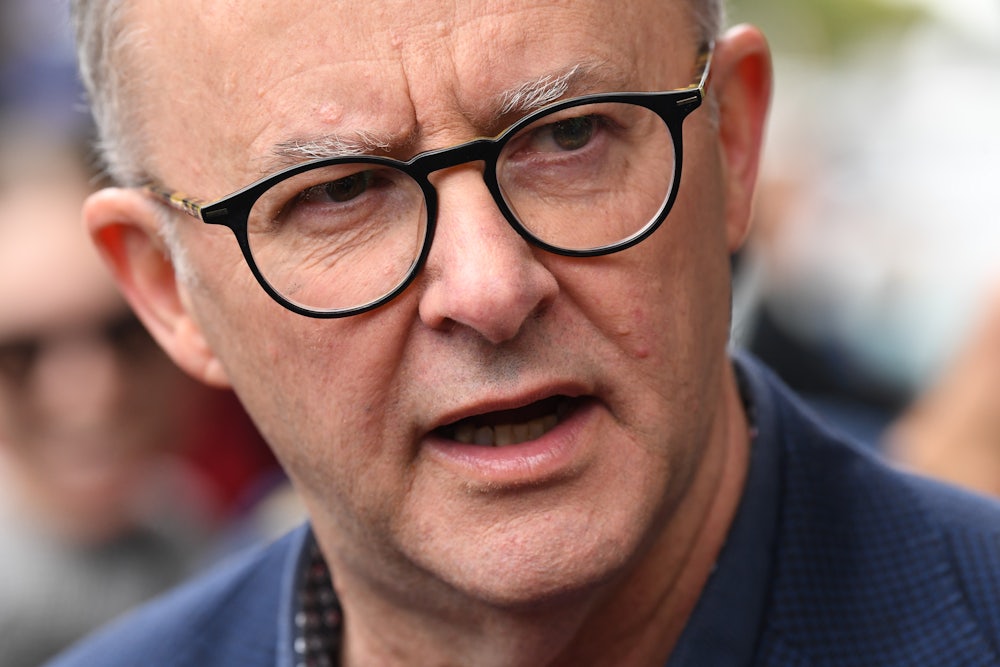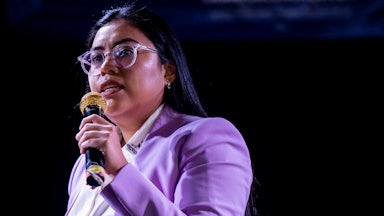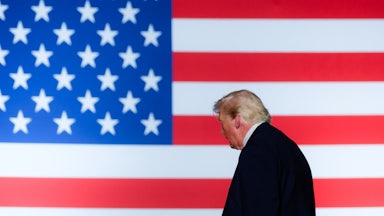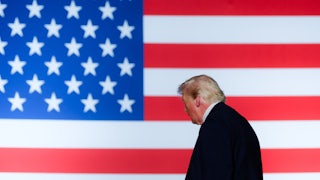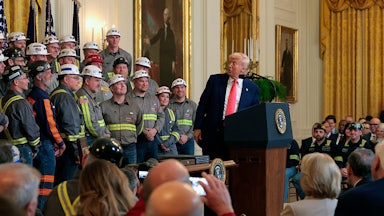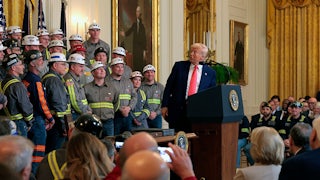After nine years of conservative rule that turned Australia into an international pariah on climate, you could almost hear environmentalists’ massive sigh of relief at the Labor Party’s victory this week. “The climate wars are over,” freshly minted Prime Minister Anthony Albanese said repeatedly after his party won, displacing the conservative Liberal-National Coalition government helmed by Scott Morrison. Albanese’s victory speech highlighted renewable energy and Aboriginal rights, as well as the desire to “build a better future.”
As the United States has learned the hard way since Trump’s loss in 2020, that’s easier said than done. Labor’s victory is undeniably good news for those hoping to see Australia—a top fossil fuel exporter, with some of the planet’s largest per-capita emissions—step up to the plate on climate. But climate activists should be ready for more resistance than might be expected given Albanese’s victory speech—including from the party that just won.
The “climate wars” Albanese mentioned are a reference to at least a decade of political jockeying, in which the right has mostly come out on top, beginning with a Newscorp-fueled fury over a carbon-pricing scheme put out by the last Labor government. Right-wing rule has seen Australia enthusiastically embrace fossil fuel expansionism, along with brutal anti-migrant policies and a hawkish stance on foreign policy.
“When people say ‘climate wars,’ what they’re referring to is the constant argy-bargy, prime ministers losing their jobs, and internal eruptions in political parties. I think it’s wrong to say the climate wars are over,” says Ketan Joshi, an Oslo-based Australian climate policy analyst and the author of Windfall: Unlocking a Fossil-Free Future. Those wars, he adds, have “just become more healthy and targeted in a better way. They might lead to real emissions reductions as opposed to these petty intraparty debates where climate is used as a proxy for something else.”
Labor’s climate commitments are certainly stronger than the Liberal-National Coalition’s. Albanese has pledged a 43 percent emissions reduction below 2005 levels by 2030, up considerably from the 26–28 percent pledged by Morrison’s government. Albanese has also set a goal of generating 82 percent of Australia’s power from renewable energy over the same time frame, with the aim of turning the island nation into a “clean energy superpower” as it scales up transmission lines and electric vehicles. Notably absent from the Labor climate agenda, though, is any direct challenge to Australia’s sizable fossil fuel industry, its top emitter. In fact, Labor actually supports expanding fossil fuels. Albanese has said he won’t move to phase out coal. “[I]f coal mines stack up environmentally, and then commercially,” Albanese has said, “they get approved, and then Labor would welcome any jobs that would be created from that.”
Like other Western parties with their roots in the socialist left, Australia’s Labor Party underwent a transformation in the latter part of the twentieth century, as it adopted more business-friendly policies. The party still has historical ties and constituencies within major extractive unions, and the combination of those forces makes it seem unlikely that a Labor government will challenge drilling and mining interests—or the considerable public subsidies that flow to them—without substantial outside pressure.
Labor is also backing a questionable scheme from the conservatives that allows major polluters to generate and sell carbon credits created if they don’t raise emissions, then sell them into the country’s domestic carbon market. The “safeguard mechanism,” as it’s known, is meant to penalize polluters by asking them to buy carbon-offset credits when they emit above a predetermined cap. Enforcement has been easy to avoid, as Guardian Australia reported. Caps are also set well above the levels at which industries currently pollute, providing an incentive to continue with status quo (or even slightly higher) emissions. Major exporting and importing industries are exempt, including the fossil fuel producers sending Australian coal and gas to be burned all over the world. The fossil fuel industry—which exercises considerable influence over Australian politics—mounted an offensive when Labor lightly suggested lowering the mechanism’s caps to a level that would eventually make them reduce emissions. So they backed off. “It’s this horrific economy of fake emissions reductions that the Labor Party is surprisingly open to,” Joshi tells me. “I think this is going to really severely derail their agenda. They’re in for a fight.”
After acceding to power in the 2019 national elections, the coalition government Morrison helmed faced both hellish wildfires at the start of 2020 and biblical floods in the east that killed 22 people earlier this year. Having defended Labor’s carbon-pricing policies against angry crowds the last time his party was in power, Albanese—weary of another fight—studiously avoided the topic as leader and on the campaign trail. Unlike in several previous elections, climate played second fiddle in both major parties’ messaging, with the competitors instead focusing on cost-of-living and foreign policy concerns.
It’d be wrong, Joshi argues, to take this dynamic as a signal that avoiding climate change in an election is the best way for a party to tackle it, or win. Both major parties lost votes in an election where 60 percent of voters listed climate as their number one issue, according to a poll conducted by the Australian news site The Conversation. Labor won with a lower vote share (31.8 percent) than it got in 2019, and lost seats nationally. The Australian Green Party, meanwhile—which absorbed left-wing voters as Labor shifted right—had its best election night ever, increasing its vote share from 1.9 percent to 12.3 percent. Thanks in part to a robust canvassing operation, the Green Party even gained seats in Queensland, a conservative stronghold that’s been battered by climate-fueled floods in recent years. The Teals—a group of climate-focused independents with more conservative economic views—won over conservative voters in wealthier, mostly urban areas. For Joshi, the success of these parties in this election showed that “running on a platform of strong climate action didn’t lose votes, it gained votes. The Labor Party probably would have done a lot better if they had run on a stronger platform and not decided that they’d lose the election if they got attacked by Newscorp and the government.”
Climate advocates argue that gains by the Greens and Teals show the government has a strong mandate to make good on its emissions-reductions promises—and go further still. “The real focus of the climate movement has been demonstrating to all candidates that there will be real electoral consequences if inaction continues,” says Lucy Manne, who heads up the Australian branch of the climate nonprofit 350.org. “We’re in a better position than the previous government, but there’s a lot of pressure that needs to be applied and a long way to go for Australia to have a science-based reduction target.”
Votes are still being counted, but it looks like Labor will have sufficient seats in both houses to form a majority government, without needing to form a coalition. “They won’t need to do any deals to form a government, but to pass legislation they will need the support of at least some of the Greens and independents,” Joshi says. Thanks in part to Greens pressing Labor to take up more aggressive climate commitments, the two parties don’t exactly get along. Those I spoke to suggested the Albanese government might go out of its way to avoid relying on Greens to move its priorities ahead. But Albanese may not have a choice. Depending on how many upper house seats they pick up in the final tally, Greens—who are calling for an end to coal and gas development—could hold the balance of power. Green Party leader Adam Brandt has said the party’s first priority in negotiating with Labor would be blocking new fossil fuel projects.
“It’s not a situation where everyone’s going to agree and quietly make climate action happen,” Joshi told me. “There are going to be a lot of big fights, and hopefully good, useful fights.”
